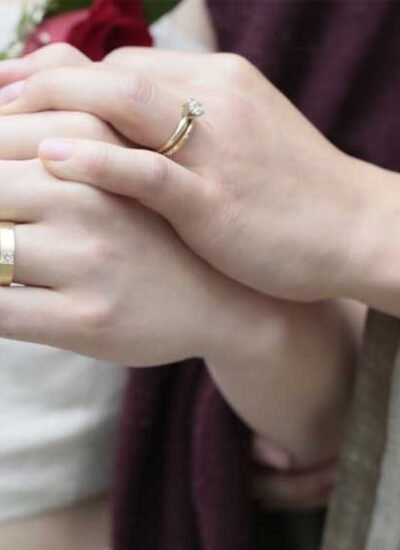Weddings are a special time when family and friends come together to celebrate the love between a couple.
However, planning a wedding can be a bit of a challenge. You have to account for everyone’s individual needs and should ensure that your event is fun for all your guests.
Planning an inclusive wedding can help your big day go smoothly. When planning, consider factors like dietary restrictions, ability level, and neurodivergence. Accounting for these individual differences will ensure all your guests feel welcome and respected at your wedding.
Getting Assitance from Tech
Wedding planning is stressful in and of itself — and things can feel even more complicated when you’re trying to be as inclusive as possible. Thankfully, technology has revolutionized the planning process, making it easier than ever to turn your dream wedding into a reality. Here’s how tech tools can simplify and enhance your journey:
- Visualizing decisions with software: Tech tools and software can be a game-changer when tackling big decisions. Whether you’re choosing between venues, comparing catering options, or deciding on a guest list size, decision tree diagramsand software help you visually map out your options and outcomes. This clarity ensures no detail is overlooked and makes the decision-making process collaborative and inclusive.
- Inclusive guest management: Use tech tools to ensure every guest feels welcome. Platforms with customizable RSVP forms allow you to gather essential details about dietary preferences, accessibility needs, and pronoun preferences, making your celebration truly inclusive.
- Streamlining communication: Wedding-specific software can keep your entire wedding party and vendor team in the loop. Share updates, schedules, and responsibilities through apps that offer shared calendars and group chats to avoid miscommunication.
By integrating technology into your wedding planning process, you not only save time but also create an organized framework that fosters inclusivity, attention to detail, and personalized touches. Whether you’re planning a small intimate ceremony or a large multicultural celebration, tech tools can help make it stress-free and efficient.
Dietary Restrictions
Many of your guests have dietary restrictions that will impact what they can or cannot eat. Rather than insisting on the set menu you want, try to offer a range of meals that account for food preferences. At a minimum, account for dietary restrictions like:
- Vegan
- Kosher
- Halal
- Gluten-free
This list isn’t exhaustive and some of your guests may have other dietary restrictions. If you’re unsure, get in touch with guests in advance and ask them if they have any dietary restrictions. You don’t want to find out that your groomsman or bridesmaid is celiac the day before you’re due to wed.
Mobility
Roughly 15% of the world’s population has a disability of some kind. Many folks who live with a disability face mobility challenges, and may require the aid of ramps, wheelchairs, or other mobility aids.
When choosing your venue, be sure to consider accessibility. Can guests who have mobility restrictions easily navigate the space? Is there support available to help meet guests’ needs? Can guests reasonably attend the wedding venue?
You should also consider your guest’s travel plans when organizing an accessible wedding. Will guests be able to easily navigate from the car park to the wedding site? If not, how will you get guests with mobility aids from the car park to the venue?
True accessibility is about giving people the dignity they deserve. Rather than treating your guests like goods to be shipped around, do your research and ensure that everyone will be able to navigate the venue space with ease and enjoyment.
Being as understanding and adaptable as possible is key when planning an inclusive wedding.
Live streaming your wedding is always a great option for those who can’t physically attend the event. You can still send formal invitations so these guests feel just as included as in-person attendees. As long as you stay on top of the tech throughout the day, including microphones and streaming platforms, this can be a great way for even more loved ones to be included in the wedding festivities.
Neurodiversity
If you’re planning a large wedding, some of your guests will likely be neurodiverse. Between 15 – 20% of the world’s population is considered neurodiverse and lives with conditions like anxiety, ADHD, autism, depression, and/or Tourette’s.
When planning an inclusive wedding, account for neurodiversity without intruding on the privacy of your guests. Provide a space where guests can get away from the crowds and hubbub of your wedding and add some sensory features like calming lighting and low music.
You can also present information in multiple ways. For example, if you plan on delivering a speech, you may also want to give guests written information or scripts. You may also want to provide name tags to help guests who experience Prosopagnosia (face blindness).
If you know about certain guests’ neurodiversity, you can ask them to provide some suggestions. Just be aware that it’s not their job to make your wedding inclusive. They may not be able to provide suggestions, and should not be expected to become an integral part of the planning process.
Identity, Values, and Culture
No wedding would be complete without rituals like emotional speeches and toasting the new couple. However, some rituals may make folks feel out of place and might not align with your values as a couple.
You can plan a gender-inclusive wedding by embracing a mixed-gendered wedding party and working with LGBTQ+-friendly vendors. Groomsmaids and flower boys are becoming increasingly popular, too.
If you have a DJ or an officiant, let them know that you want their language to be gender-inclusive. This can avoid awkward moments and ensure that everyone can contribute equally to your new bond as a couple.
Understanding and honoring the cultural heritage of others is essential when planning an inclusive ceremony. For example, if your partner’s family has roots in India, incorporating meaningful traditions from their culture can be a beautiful way to show respect and demonstrate how much you value their background and connection.
Alcohol
Wedding parties are a great time to blow off some steam and celebrate a couple’s bond. It’s also a time when many guests make good use of the bar and will spend hundreds — if not thousands — of dollars on alcohol.
However, some people do not drink alcohol but still want to have a good time. Some guests choose to live a teetotal lifestyle through choice, while others find that alcohol negatively affects their bodies and leads to conditions like acid reflux, GERD, or immunodeficiency.
You can support guests who want to skip the booze by providing mocktails and other non-alcoholic specialty drinks. There’s nothing more awkward than sipping soda or water while everyone else enjoys tasty drinks. Common alcohol-free mocktails include:
- Piña Colada
- Mojito
- “Whisky” Sour
- Negroni
These cocktails make for tasty alternatives and ensure that no one will feel left out. Speak to your venue long before the date of your wedding and ensure that they are fully prepared to mix and make alcohol-free drinks.
Your wedding day should be a celebration of your bond and love for each other as a couple. Ensure the day goes smoothly by planning a fully inclusive wedding. Work with LGBTQ+-friendly venues, provide a menu that accounts for dietary restrictions, and offer alcohol-free alternatives to guests who don’t drink.





Leave a Reply